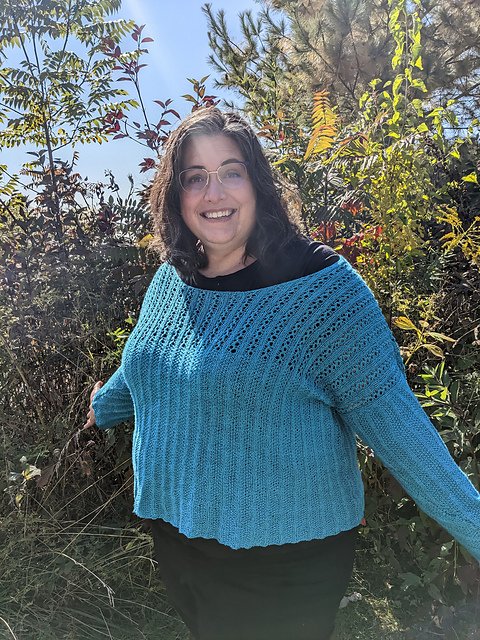How’s that for a silver lining of the need for social distancing? More books, more knitting, more facetime with my family at home. Not to take the situation lightly, because whoa. But we’re all just trying to get through. For me, I’m working at home with the dining room table as my new office.
Fortunately, my company has been doing work-at-home Wednesdays for 8 months or so with the goal of cutting our carbon footprint (no commuting, no big building being heated or printers powered, and so on for one day a week). It means that we’re all equipped to collaborate and communicate fairly seamlessly from home already, so that’s been smooth. Says me, whose children are teens and fairly self-running. My heart goes out to my friends and peers who are doing all the things with babies/toddlers/preschoolers/primary kids to manage too. Tough!
But back to books and a longer list than I’ve had of late.
Unbroken: A World War II Story of Survival, Resilience and Redemption by Laura Hillebrand. Did I mention I belong to a book club now? This was a book club pick, and a good example of a book I’d never choose on my own but I’m glad to have read it. It’s about a man named Louis Zamperini, an American Olympic runner who became an Army bombardier stationed in the South Pacific at the time of the Pearl Harbor bombing. After many harrowing missions, his plane is shot down and an entirely new “act” opens. That’s how I experienced this biography, like an incredibly absorbing play. Act 1: Mischievous young Louis finds self-discipline through athletic training. Act 2: Louis becomes a man, responsible for his own and others’ lives as part of an elite Army squadron. Act 3: Louis survives in an unforgiving enemy ocean on a raft for 6 weeks, discovering an unbelievable well of inner strength. Act 4: Japanese prison camp: Worse than I had any notion of. Act 5: His survival and eventual “rebirth.” It’s stunning, minutely documented and, in parts, hard to read.
The Last House Guest by Megan Miranda. If you think I was due for a fast and non-emotionally draining read after the last book, you’d be correct. This novel is a psychological thriller written in a similar vein (not copying, but similar) as books like Gone Girl or Girl on the Train. You can’t be sure who’s telling the truth and who’s lying – or delusional – including the narrator. Just what I needed!
The Pyramid: And Four Other Kurt Wallander Mysteries by Henning Mankell. I love me some Nordic gloom, especially as our hemisphere starts to brighten up a little. These stories tell of Wallander’s earliest years as a police officer and detective. As always, an excellent read.
Women Talking by Miriam Toews. A friend – who is also a big fan of Ms Toews – told me she couldn’t get into this book despite really trying: “It’s literally just women talking! Nothing happens.” And, you know, that’s pretty accurate as a summary of the narrative. I loved it though. It is the minutes of secret meetings between women in a Mennonite colony where there has been a long history of night-time druggings and rapes that have only just been discovered. The women, traditionally powerless and accustomed to strict obedience to the men, are deciding what action to take, if any. It’s fascinating and the language feels so authentic. Interestingly, the minutes are kept by the only man the women trust (the school teacher who is at the absolute bottom of the male hierarchy) because none of the women are literate. Therefore, their most private words to each other are still recorded through a male filter, adding yet another layer to parse. I think it’s absolutely brilliant… but don’t expect fast decision-making and forceful action.
The Testaments by Margaret Atwood. This may even be better than The Handmaid’s Tale, to which it is the sequel, taking place just over a decade or so later. Holy smokes, I was gripped. I did not anticipate this approach at all. Mostly focusing on the perspectives of one of the Aunts and of the teenage daughter of a Commander, this book gives a whole new dimension of Gilead. So good! You don’t need to read The Handmaid’s Tale first, but why wouldn’t you?
The Merchant of Venice by William Shakespeare. I read this script because my son is reading it for school this term in grade 10 English. Somehow I’d never read it before or seen it on stage. Not sure why it makes the cut to teach over so many others. It’s beautifully written, of course, and some absolutely gorgeous speeches, but the anti-Semitism is just so on the surface. If it was more cloaked or subtle, that could be a source of learning in itself, but… Shrug. I’m not going to diss Will, obviously, just wondering at the curriculum choice.
Our Daily Bread by Lauren B. Erskine. I’m so curious what the book club ladies will think of this one. It’s a doozy about a socially isolated, poverty-stricken community – just outside a “normal” town – where sexual abuse and various kinds of addiction are the norm. Fiction, loosely based on real life cases, shows a picture of what happens when the more powerful accept that certain people are simply backward, too different and unworthy of extra effort. Another tough read. I need an antidote.
Dead Eye by Alyssa Day. To be honest, I’m a little torn about what to think about this book. It is a super-entertaining read, and I’d normally be fast to endorse it as a nice light snack (and it definitely lightened up my mental load after my last several choices!). However, it’s so blatantly “borrowing” from the world created by Charlaine Harris in the Sookie Stackhouse/Trueblood stories that it feels across the line. Shifters, vampires “coming out of the coffin” into mainstream life, a pawn shop (as in the Midnight, Texas series), similar cover art – even a tiger–human named Quinn! Like shockingly high-quality fan fic with originality too. I tried to search up any endorsement by Ms Harris or even if Alyssa Day might be a pseudonym for her, but no luck. So I don’t know, but I really enjoyed it!
On the Pod:
I mentioned my long-time favourite Rex Factor last month, which is the podcast that led me to Saga Thing. Inspired by Rex Factor, Saga Thing is hosted by two professors of medieval literature with deep love and knowledge of medieval Iceland. Their goal is to read and review the Icelandic sagas, one at a time, in an epic quest to put the sagas of the Icelanders on trial and to celebrate the greatness of saga literature.
After a summary and discussion of the featured podcast, judgement is rendered on the following topics:
Best Bloodshed – who had the most brilliant death or maiming?
Body Count – a tally of every unnatural death in the saga
Notable Witticisms – an award for the best bit of dialogue or description
Nicknames – a review of the best nicknames in the saga, with an award for favourite
Outlawry – a tallying-up of the despicable behaviors of the figures in the saga, at the end of which the sentence of outlawry and exile is passed on the most irredeemable of the bunch
Thingmen – as goðar (chieftains) and each host chooses a figure they’d want on their side in a feud or at the Althing
Ratings – a subjective assessment of the saga’s quality
It’s early days for me yet with this podcast, but I’m learning plenty of things that I’ll never have reason to call on in real life. Perfect!




